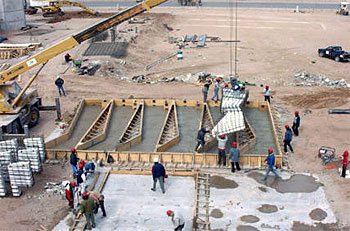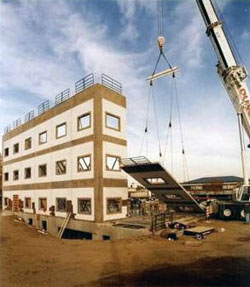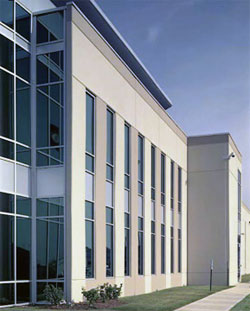Safety and Convenience
Financial Benefits | Environmental Benefits | Safety & Convenience
Construction | Durability | Aesthetics| FAQs
Safety
 Most work is on the ground.
Most work is on the ground.
There is no vertical formwork, no scaffolding, since walls are constructed horizontally. In addition, since the floor slab is poured first, workers have a safer working surface.
Labor crews are smaller.
Without vertical forming, or other costly erection processes, few workers are needed, especially during the lifting operation. The short project cycle presents less opportunity for accidents.
Fast-Track Delivery
 Design-Build
Design-Build
The fast delivery system for your project, in which building construction proceeds while the design is developed, speeding completion. Tilt-Up lends itself to this process because wall panel construction can proceed while the rest of the building is designed.
Earlier occupancy
When you decide to build, you want to proceed quickly. With Tilt-Up, you get compression of disciplines—many phases are completed simultaneously. Therefore, you can move into your building sooner.
Assembly line prefabrication
Load-bearing reinforced concrete wall panels are cast horizontally on the floor slab or a casting slab, and are tilted up into their final vertical position with high-capacity mobile cranes. The entire process is designed for efficiency and speed of erection.
 Trades get in sooner.
Trades get in sooner.
Because the floor slab is poured first, the other trades can work sooner and in a better work environment, which saves time and money.
Materials and labor are more readily available.
Site-cast Tilt-Up uses ready mixed concrete usually available near the job site. Contractors use local labor.


